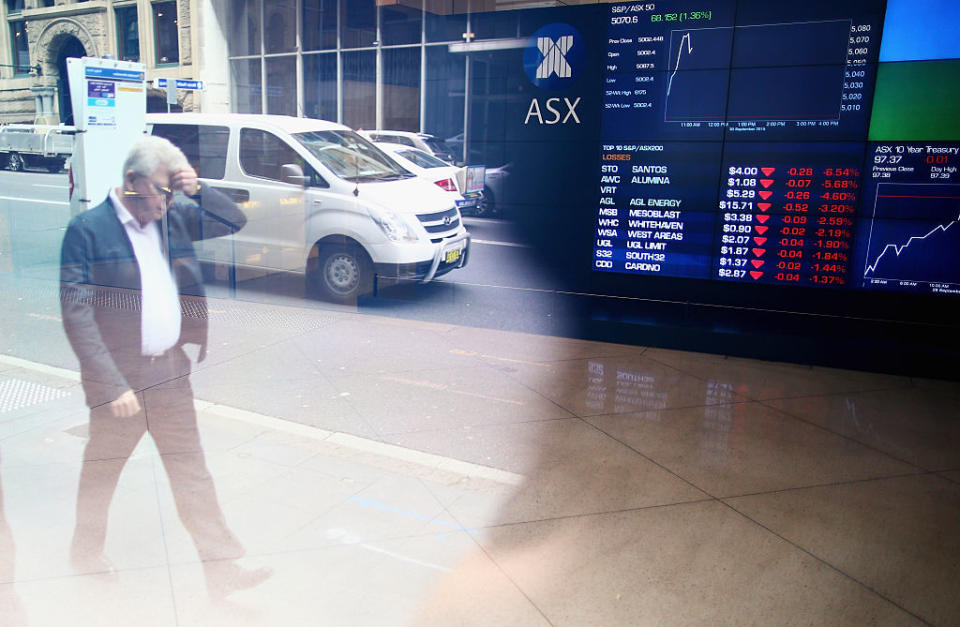Stock market crash just wiped $5,500 off your savings

The Australian and global stock markets have been tanking for the past week after US and China's spat went to the next level – and there's no end in sight.
The All Ordinaries, an index that measures the performance of the Australian Securities Exchange, has lost 5.5 per cent in value since its peak on Tuesday last week.
Even though only 31 per cent of Australians own shares directly, many are not aware pretty much everyone's wealth is affected when the share market falls or rises – because of superannuation.
Also read: How to get the most money back on your tax return
Also read: Half-price specials: Coles, Woolworths' best deals this week
With Australia a rare example of a country with compulsory superannuation, almost every adult has some money tied up in the stock market.
Even those who have their stash conservatively put in bonds and cash are affected to some extent, as the fortunes of those markets dance with the health of the share market and the economy.
Australians have, on average, about $100,000 saved in superannuation. This is a rough figure, as the entire national population includes a wide variety of ages and work experience.
But it means that a typical person could have lost something like $5,500 in the past week. That loss would be even larger for older workers with bigger nest eggs.

What to do during a share market crash
Founder and chief of super comparison service Roll-It Super, Mark MacLeod, told Australians to not panic as the stock market tumbles.
"Super is compulsory and you can’t take your money out and put it under the mattress - unless you are retired and even then I wouldn’t recommend it."
MacLeod told Yahoo Finance that the old "buy low, sell high" philosophy is good in theory but not practical in the real world.
"If you believe what you hear during dinner party conversations, your neighbour or friend is a genius at it. Whether property, shares or bitcoin, they seem to be able to buy low and sell high all the time," he said.
"The truth is that even professional investors have a difficult time picking the bottom or top of a market. No one likes to admit when they have lost money, so it is easier to never talk about it!"
How to beat share market falls
While no one has a crystal ball, there is a strategy that professionals employ to negate the risk of buying and selling at the wrong times.
It's called dollar cost averaging, according to MacLeod.
"Instead of trying to pick market highs and lows, you buy a fixed amount of an investment on a regular schedule.”
"As a result, you pay the average price for a share, not the highest or the lowest price."
If you are only invested in shares through a superannuation fund, there's good news as the strategy is already executed automatically.
"Because it is compulsory for your employer to pay regular superannuation contributions, you are automatically benefiting from dollar cost averaging."
Make your money work with Yahoo Finance’s daily newsletter. Sign up here and stay on top of the latest money, news and tech news.

 Yahoo Finance
Yahoo Finance 